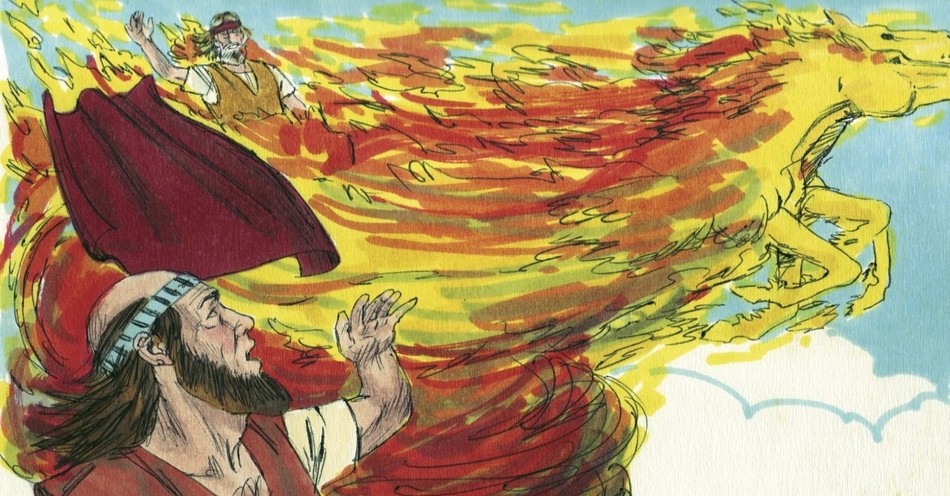What Do We Know about Elijah and Elisha?
Two biblical figures who are easy to confuse are Elijah and Elisha. Both were Old Testament prophets. Both led wild and storied lives. One preceded the other, but both were devoted to God and reflected His truth and power in their ministries.
They served God in the Northern Kingdom of Israel during a particularly dark time in Israel’s history. The reigns of Ahab and Ahaziah were marked by idolatry, corruption, and a rejection of God’s prophets.
Rejection is a mild word for the persecution Elijah experienced from Ahab’s wife, Jezebel. Jezebel was a worshiper of Baal who hated the school of prophets. She sought to kill as many as possible to silence the voice of God in the land. Elijah served until Ahaziah’s death, while Elisha lived into Joash’s reign.
Who Was Elijah Before He Met Elisha?
Elijah began his ministry before Elisha, mentoring the younger man. While Elijah’s mentoring of Elisha had thrilling moments, he had a fierce and fiery ministry in the land even before he took Elisha under his wing. The Bible primarily tells Elijah’s story in 1 Kings 17 through 2 Kings 2.
Elijah is best known for his showdown with the false prophets of Baal. He challenged them to call down fire from Baal to burn up a sacrificial bull. He allowed them to go first. They made a great show of performing their rituals and shouting to Baal, asking for fire to rain down and consume the sacrifice. Of course, there was no answer from Baal.
When it was Elijah’s turn, he asked all the servants to soak the bull, soak the altar, and even dig a trench around the sacrifice and fill it with water. When he called on the Living God of Israel, fire consumed not only the sacrifice but also the wood, the stones, the dust, and the water from the filled trench. A magnificent display of God’s power.
Not long after this, with Jezebel threatening to end his life, Elijah sat down exhausted under a broom tree and asked God to let him die. Instead, God told him to sleep, then sent food and water by an angel, and Elijah slept some more. After this, God spoke to Elijah and, among other things, told him to anoint Elisha to become a prophet in his place. Elijah talked about feeling alone among the prophets in a land that had forsaken God. God let him know there were others, and he was not completely alone.
Elijah is credited with at least eight miracles, including calling down fire from heaven. Others include shutting up the heavens to cause a drought, multiplying flour and oil for a desperate widow, raising the widow’s son from the dead, calling out rain to end the drought, destroying two different groups of soldiers with fire and lightning, and parting the waters of the Jordan.
Elijah was an uncompromising prophet. He boldly prophesied in God’s name against corrupt and idolatrous rulers.
How Did Elijah and Elisha Meet?
Elijah and Elisha met after God’s instruction to anoint him as a prophet to take Elijah’s place. Their names are similar, but Elijah means “Jehovah is my God,” and Elisha means “My God is salvation.”One way to remember which came first is to associate the S in Elisha’s name with salvation and remember that he lived closest to the coming salvation of Jesus.
The prophets’ meeting is recorded in 1 Kings 19:19-21 ESV:
“So he departed from there and found Elisha the son of Shaphat, who was plowing with twelve yoke of oxen in front of him, and he was with the twelfth. Elijah passed by him and cast his cloak upon him. And he left the oxen and ran after Elijah and said, “Let me kiss my father and my mother, and then I will follow you.” And he said to him, “Go back again, for what have I done to you?” And he returned from following him and took the yoke of oxen and sacrificed them and boiled their flesh with the yokes of the oxen and gave it to the people, and they ate. Then he arose and went after Elijah and assisted him.”
Their meeting may seem strange, but no stranger than fishermen dropping their nets and leaving everything to follow the One who was to come. In casting his cloak on Elisha, Elijah was signifying his desire to have him as his student or protégé. In killing and boiling his oxen, Elisha was destroying everything that might tempt him to return to his old life so he would be completely focused on moving forward with Elijah.
How Did Elisha Succeed Elijah
Elisha’s story begins in 1 Kings 19 and continues through 2 Kings 13. First, we see glimpses of his life in the overlap of the two prophets while Elijah was mentoring Elisha.
Elijah prophesied against Ahab and Jezebel’s evil acts until Ahab died and his son, Ahaziah, ascended to the throne. Ahaziah governed in the corrupt pattern of his parents. Ahaziah also died while Elijah lived and was replaced by Jehoram.
Elijah’s passing is as strange and mysterious as his life. It is recorded in 2 Kings 2. Elijah walked from town to town, and Elisha refused to leave his side, knowing his time on earth was coming to a close. Finally, Elijah asked Elisha what he wanted before God took him. Here is Elisha’s reply:
“When they had crossed, Elijah said to Elisha, ‘Ask what I shall do for you, before I am taken from you.’ And Elisha said, ‘Please let there be a double portion of your spirit on me.’ And he said, ‘You have asked a hard thing; yet, if you see me as I am being taken from you, it shall be so for you, but if you do not see me, it shall not be so.’ And as they still went on and talked, behold, chariots of fire and horses of fire separated the two of them. And Elijah went up by a whirlwind into heaven. And Elisha saw it and he cried, “My father, my father! The chariots of Israel and its horsemen!’ And he saw him no more.” (2 Kings 2:9-12).
Elijah was “taken up to God,” which is why when Jews celebrate a traditional Passover Seder, they leave an empty chair for Elijah. Chariots of fire came down in a whirlwind from heaven, escorting Elijah home. Some speculate that Elijah is one of the two witnesses spoken of in Revelation 11 because he hasn’t yet died. He did appear and was seen by Peter, James, and John on the Mount of Transfiguration in Matthew 17.
But, from here, Elisha assumed the prophet’s ministry and does, indeed, receive a double portion of his spirit. The Bible attributes eight miracles to Elijah but attributes sixteen to Elisha.
What Did Elisha Do After Elijah Was Gone?
Some miracles attributed to Elisha were parting the waters of the Jordan River, purifying water, sending bears after his attackers, causing a flood to save Israel from the Moabites, and healing a barren Shunammite woman so she could conceive. Elisha also raised a child from the dead, purified poison soup, multiplied loaves to feed a large group of people, and made an axe head float.
Further, Elisha healed Naaman of leprosy and cursed Gehazi with leprosy. He struck the Aramaens blind and prophesied the end of their siege. He prophesied the death of Ben-Hadad and that Israel would defeat Aram.
Elisha’s death is recorded in 2 Kings 13:14-21. He was still prophesying right to his last hour. The prophet’s power was so great that an amazing story concludes his life's history.
“So Elisha died, and they buried him. Now bands of Moabites used to invade the land in the spring of the year. And as a man was being buried, behold, a marauding band was seen, and the man was thrown into the grave of Elisha, and as soon as the man touched the bones of Elisha, he revived and stood on his feet” (2 Kings 13:20-21 ESV).
What Can We Learn from Elijah and Elisha?
There is great value in reading the Bible’s chapters devoted to these two great prophets. They have lessons to teach us about the value of mentoring, and even more lessons about the power of God. There are certainly strange happenings in their stories, so it’s important to read them in the context of Israel’s history and the culture of the times.
Elijah and Elisha are strong role models in devotion, faith, prayer, and unwavering obedience in the face of corrupt power and persecution. They show us all how to stand for God, even when we feel like we may be the last voice for Him. Two Old Testament figures who are supremely relevant for modern times.
Photo Credit: Getty Images/BibleArtLibrary
This article is part of our People of Christianity catalog that features the stories, meaning, and significance of well-known people from the Bible and history. Here are some of the most popular articles for knowing important figures in Christianity:
How Did the Apostle Paul Die?
Who are the Nicolaitans in Revelation?
Who Was Deborah in the Bible?
Who Was Moses in the Bible?
King Solomon's Story in the Bible
Who Was Lot's Wife in the Bible?
Who Was Jezebel in the Bible?
Who Was the Prodigal Son?




